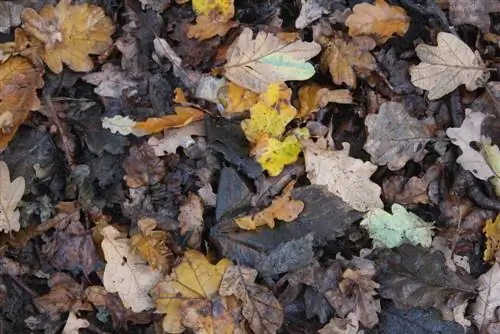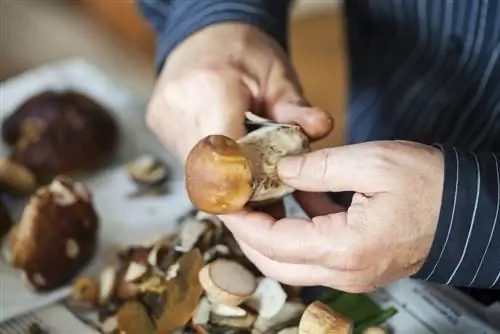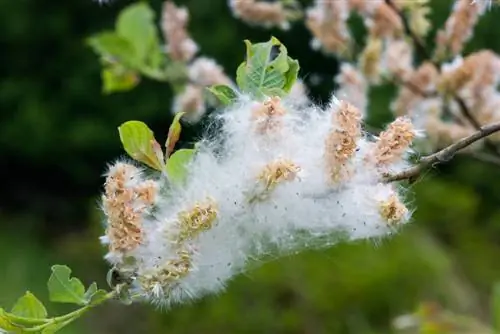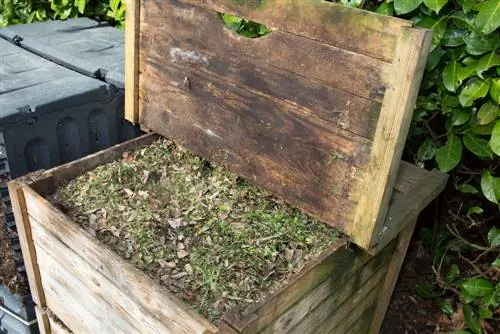- Author admin leonars@hobbygardeners.com.
- Public 2023-12-16 16:46.
- Last modified 2025-01-23 11:22.
Getting soil from your own garden plants is not difficult. The leaves of trees and bushes can also be used for this purpose and ultimately produce fantastic soil. But how long does it take and what factors influence decomposition?
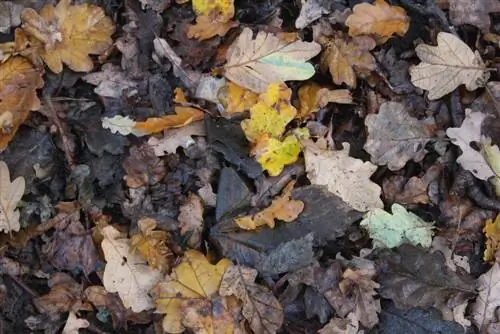
How long does it take for leaves to turn into soil?
Leaves turn into soil on average within three years. The duration depends on factors such as foliage type, climatic conditions and composting methods. Foliage that decays more quickly comes from fruit trees, while foliage with a high tannin content takes longer.
How long does it take on average for leaves to rot?
On average it takesthree years for leaves to transform into soil. Under certain circumstances this can also happen faster or slower. So you can only use the leaves you have collected and composted as soil for your plants in the garden after about three years. But it's worth it, because this soil is humic and, due to its acidic pH value, is ideal for plants such as blueberries, cranberries, potatoes, salads and rhododendrons.
What does the length of time the leaves take to rot depend on?
The duration of decomposition of the foliage depends onseveral factors. These include, among other things, the type of foliage, the climatic conditions, the weather conditions and the method of composting. For example, your leaves in the garden will rot more quickly if they are in a plastic bag that has holes in it and contains horn shavings.
Which leaves rot the fastest?
The leaves offruit trees such as apples, pears and plums rot the fastest. It usually only takes a few months for these leaves to turn into soil. In addition, other deciduous trees such as maple, linden, ash and birch are also known to have quickly rotting leaves.
Which leaves only slowly turn to earth?
Leaves of chestnuts, oaks, walnuts and plane trees, which contain plenty oftannins, rot very slowly. Sometimes it can take up to 5 years for their leaves to completely decompose.
Can you speed up the decay of leaves?
You canaccelerate the decomposition of leaves using various tools and methods. You can add natural materials to the leaf compost and this will stimulate the decomposition process. The following are suitable:
- Earth
- Lime
- Rock powder such as bentonite or zeolite
- Horn meal
- Lawn cutting
- Organic waste
- Horse manure
- Cattle dung
You can also drive over the leaves with a lawnmower and shred them. In crushed form, microorganisms in the leaves can work more effectively and quickly.
Composting in layers also helps to accelerate rotting. The foliage should be layered 5 to 10 cm thick, alternating with other plant waste.
Tip
Moisture drives decomposition
Wet leaves rot faster than dry ones. It is therefore best to rake up the leaves after a rainstorm. It is also advisable to water the foliage repeatedly over the months and years.

